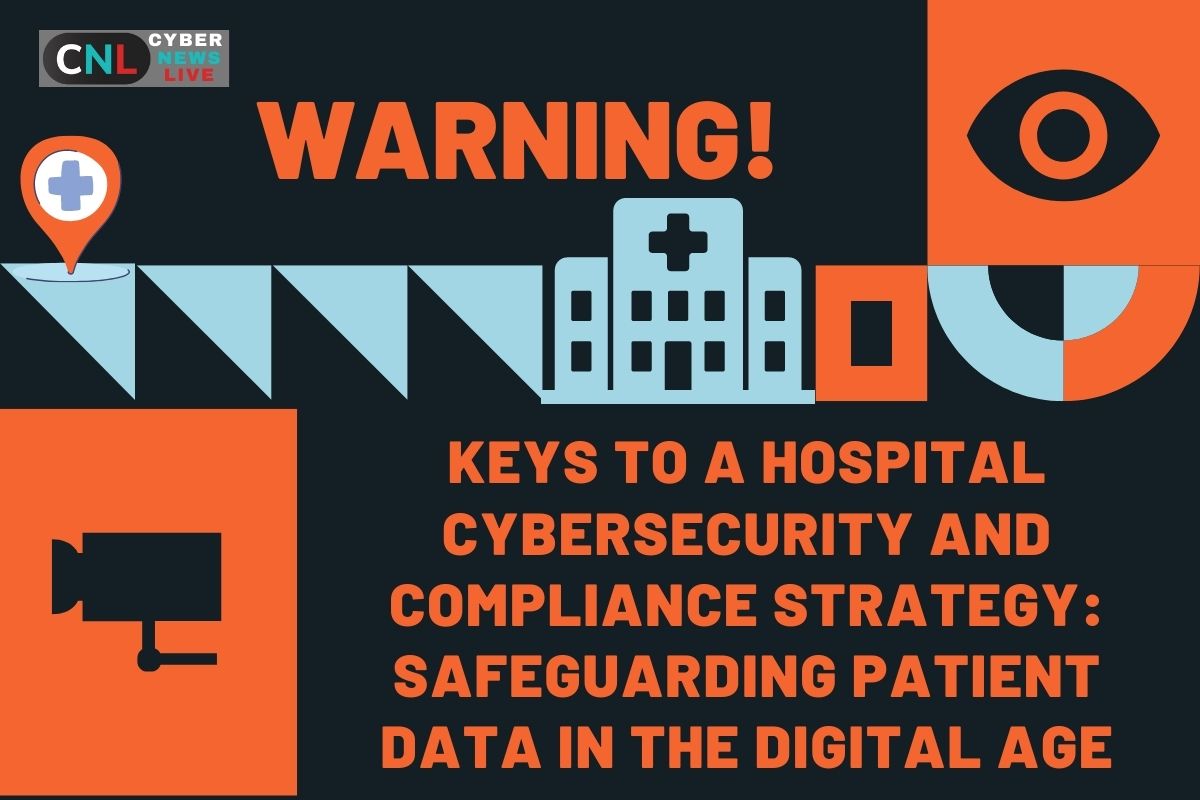

Keys to a Hospital Cyber Security and Compliance Strategy: Safeguarding Patient Data in the Digital Age
In an increasingly digitised healthcare sector, hospitals confront an increased threat of cyber security breaches that jeopardise patient data and disrupt vital operations. It is critical to protect sensitive patient information while also adhering to regulatory obligations. Establishing a strong cybersecurity and compliance plan is critical for hospitals to protect patient data, maintain confidence, and provide uninterrupted healthcare services.
In this blog, we will explore the key elements that hospitals should consider when developing their cybersecurity and compliance strategies.
Hospital Cyber security and Compliance Challenges
The value of the care that they receive is increasingly a bigger priority for patients. Patients are expecting better access to billing, network information, and a clearer description of benefits as a result of the consumerization of healthcare. As a result, the HPH industry has embraced more practical approaches to providing healthcare, including telemedicine, virtual waiting areas, pre-registration and co-pay portals, and other remote healthcare systems.
New risks related to data security, legal compliance, and regulatory compliance in healthcare are brought about by these cutting-edge technologies:
- 60% of all modern medical equipment, according to the Open Source Cybersecurity Intelligence Network and Resource (OSCINR), are unmatchable.
- The number of reported data breaches rose by 40.63% in February 2021, according to the HIPAA Journal’s study on the subject. Most of these involved hacking incidents.
- To make matters worse, according to IBM, the healthcare sector would incur data breach costs at a rate of $7.13M per month by 2020, making it the most expensive sector overall.
Governments have created legislation like the California Consumer Protection Act (CCPA), the Health Insurance Portability and Accountability Act (HIPAA), and the US Privacy Act of 1974 to protect patients (customers). These new rules must be followed by hospitals and other healthcare facilities, or they risk major compliance problems.
Key element to a hospitality cyber security and compliance strategy:
Comprehensive Risk Assessment
An effective cybersecurity plan starts with a comprehensive risk assessment. To detect vulnerabilities and potential threats, hospitals must conduct a complete examination of their infrastructure, systems, and processes. Analysing the IT infrastructure, network design, data storage, and access controls are all part of this. Internal and external risks, such as employee training, third-party vendor relationships, and developing cybersecurity threats in the healthcare industry, should also be considered in the evaluation.
Robust Data Protection Measures
Patient data security is a critical component of any hospital cybersecurity plan. To maintain the confidentiality, integrity, and availability of sensitive information, strong data protection procedures must be implemented. To secure data at rest and in transit, hospitals should use robust encryption algorithms. Access controls should be put in place to restrict data access to authorised personnel. Data backups and disaster recovery plans must be performed regularly to ensure data availability in the event of a breach or system failure.
Employee Training and Awareness
Employees play a critical part in ensuring a hospital’s cybersecurity and compliance. Employees should be given extensive training on cybersecurity best practices, data handling protocols, and potential threats. Employees must be educated on social engineering techniques, phishing attempts, and the significance of strong password management. Regular cybersecurity awareness programmes can help to underline the importance of cybersecurity and encourage staff to report any suspicious activity as soon as possible.
Robust Network Security
Hospitals must establish robust network security measures to prevent unauthorized access and protect against cyber threats. This includes deploying firewalls, intrusion detection systems, and intrusion prevention systems to monitor and block malicious activities. Network segmentation can help isolate critical systems and reduce the potential impact of a breach. Regular vulnerability scanning and penetration testing are essential to identify and address any weaknesses in the network infrastructure.
Compliance with Regulations
Healthcare organisations are subject to numerous regulations and frameworks, such as the Health Insurance Portability and Accountability Act (HIPAA) and the General Data Protection Regulation (GDPR). Hospitals must ensure strict compliance with these regulations to avoid legal penalties and maintain patient trust. This involves regularly reviewing policies and procedures, conducting internal audits, and staying up to date with evolving compliance requirements. Implementing appropriate access controls, data encryption, and incident response plans are essential components of regulatory compliance.
Incident Response and Business Continuity
Despite robust preventive measures, hospitals should be prepared for potential cybersecurity incidents. Establishing an effective incident response plan enables quick detection, containment, and mitigation of breaches. Hospitals should define roles and responsibilities, establish communication protocols, and conduct regular drills to test the efficacy of the plan. Additionally, implementing a comprehensive business continuity strategy ensures minimal disruption to patient care and critical operations in the event of a cybersecurity incident.
Conclusion
Developing a comprehensive cybersecurity and compliance strategy is essential for hospitals to protect patient data and maintain trust in the digital age. By conducting thorough risk assessments, implementing robust data protection measures, prioritizing employee training, ensuring network security, maintaining regulatory compliance, and establishing incident response and business continuity plans, hospitals can fortify their cybersecurity defences. Safeguarding patient data is not just a legal and regulatory obligation but also a critical step towards providing secure and uninterrupted healthcare services.
